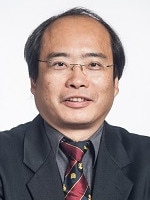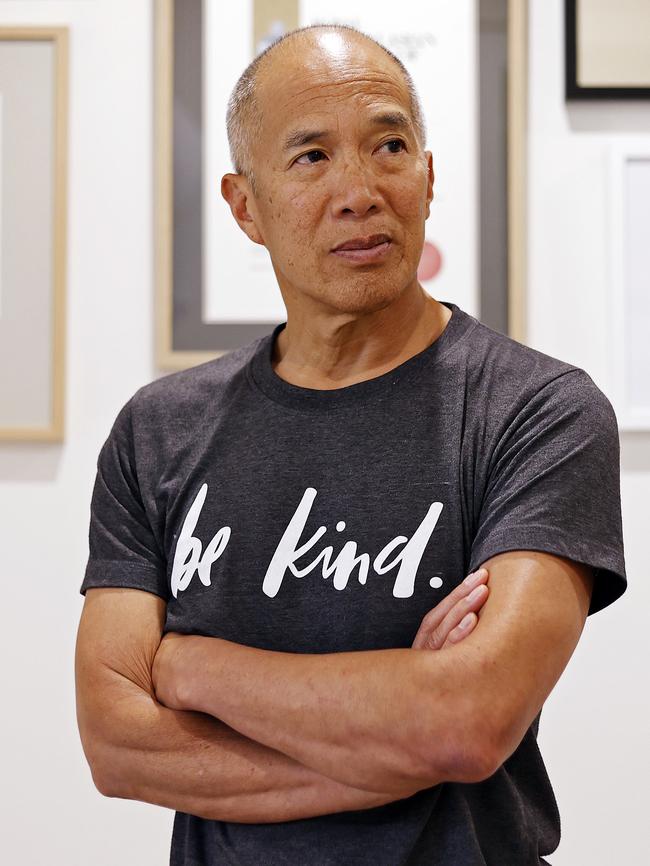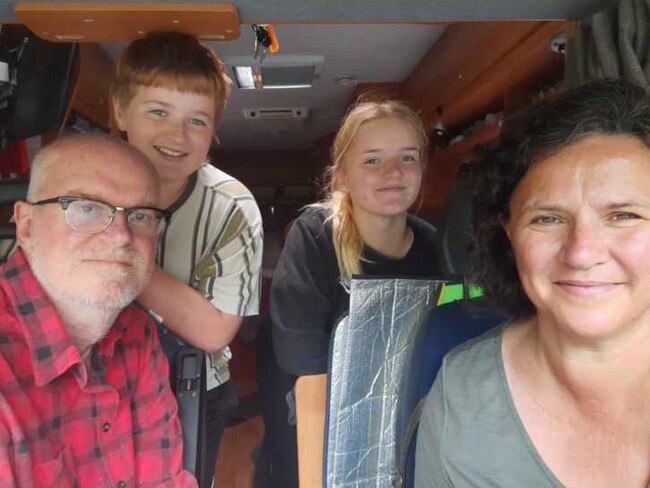Neurosurgeon sceptical of Dr Charlie Teo writes letter of support
A Singapore-based neurosurgeon who said Dr Charlie Teo had a reputation of “being a bit of a maverick and a showman” has come out in support of him after seeing his skills in action.
NSW
Don't miss out on the headlines from NSW. Followed categories will be added to My News.
A Singapore-based neurosurgeon who made a submission to the NSW Medical Council regarding Charlie Teo said he understood why conventional neurosurgeons were sceptical of the controversial doctor who had the reputation of “being a bit of a maverick and a showman”.
Associate Professor Yeo Tseng Tsai, Head of the Division of Neurosurgery at the National University Hospital, spoke at the same conferences as Dr Teo three or four times in the past few years.
“I told him that it was quite hard for me as an average neurosurgeon to totally believe some of the very impressive surgical results he managed to achieve, based on what he presented at these meetings,” Prof Tsai said in a letter to the Medical Council which is investigating complaints made against him in the treatment of 3 patients with glioblastoma.
EDITORIAL: DR TEO ISSUE NO SOB STORY
The Sunday Telegraph understands the complaints relate to his decision to operate and informed consent, post-operative care and follow-up.
“I knew of his reputation as being a bit of a maverick and a showman, and I also knew that he was much hated by most of the Australian neurosurgical community,” Prof Tsai said.
“I was only concerned about whether what he presented at these meetings was really true or just so much hogwash.”


A sceptical Professor Tsai invited Dr Teo to Singapore to speak at a university conference and to operate on several of his Singapore patients “with very challenging neurosurgical pathologies in our university hospital”.
Dr Teo operated on five to six patients that week, “all with very difficult brain tumours”.
“I must honestly say the results in all of them were astoundingly good with truly excellent outcomes,” Prof Tsai said.
“I confess I lost all my scepticism of him there and then. Seeing is believing as they say, and I realised then that I was now observing one of the great technical neurosurgeons in the world performing at truly world class levels in our own university hospital in Singapore.”
All these patients were public patients so he received no payment for these surgeries he performed in Singapore.
Dr Tsai said that on the issue of informed consent, Dr Teo was “very honest and frank” with risks “clearly enunciated”.
“There were a few instances where I personally thought surgery was definitely not indicated, but he had a differing opinion. In most of them, he was proved correct in the end,” he said.
“I am not saying he was right all the time though, and there were a few cases where the outcomes were not really great, and one could wonder (in retrospect) whether surgery should have been offered at all in the first place.
“My experience with him, even in these cases with a less than stellar outcome, was that he was always very upfront and honest with the patient and relatives pre-op, so that we had no issues at all with relatives and patients when the post op outcome was less than what we expected, as a very good bond of trust had been built with them.”
Dr Teo appeared before an “immediate action panel” of the Medical Council in August last year after complaints from other surgeons about his last-chance operations on patients with “inoperable” conditions.
The high-profile doctor has to provide a monthly log of names and procedures for all patients and seek the second opinion of another neurosurgeon before performing on two rare brain conditions — malignant intracranial tumour and brain stem tumours.
The council ruled that he cannot perform those two types of surgery without a written statement supporting the operations from a council-approved neurosurgeon who has to ensure that Dr Teo has explained to the patient all the risk associated with the procedures and obtained informed financial consent.
The Medical Council referred Dr Teo’s case to the state’s health watchdog, the Health Care Complaints Commission.
CHARLIE GAVE US TWO DECADES, AND TWO KIDS
Sarah Nash has two children thanks to Charlie Teo.
And she has a message for people trying to stop him from operating on willing brain cancer sufferers — “don’t take away hope”.
“Whether people want to take a chance to get three more months of life, whatever it is that they are hoping for, you can’t take that away from them, let him do it.”
Mrs Nash is holidaying on the north coast of NSW with her husband Scott and their two children.
“Scott has had seven surgeries and he doesn’t want further treatment, so we are on a family holiday which will probably be our last,” Mrs Nash said.

“But he’s got 20 years thanks to what Charlie has done for him and we have two children as a result,” Mrs Nash said.
“It’s like all the stories you read about patients, other doctors told him it was inoperable. They said it will turn malignant one day so go away and make memories.
“Two years later we went to Charlie for an opinion and he said ‘yes it’s tricky but I think I can get it.
“Scott said he had nothing to lose and everything to gain so he had the operation and Charlie got 90 per cent of a tumour deemed inoperable.”
“Then he treated it as chronic. Every year he went for scans and when it started to look like growing Charlie would say ‘if you’re up for it lets take it out.”
Scott has been “fighting a long time” and doesn’t want any further surgeries.
But the Newcastle couple are so thankful they had the choice.
“We can’t imagine what other families must be feeling who still need Charlie but can’t have him. How would I explain that to my kids?”
The Medical Council of NSW has placed a number of conditions on Dr Teo’s registration, directing him to meet regularly with a supervisor and get a supporting opinion from a fellow neurosurgeon before operating on recurrent cancerous brain tumours and brain stem tumours.





